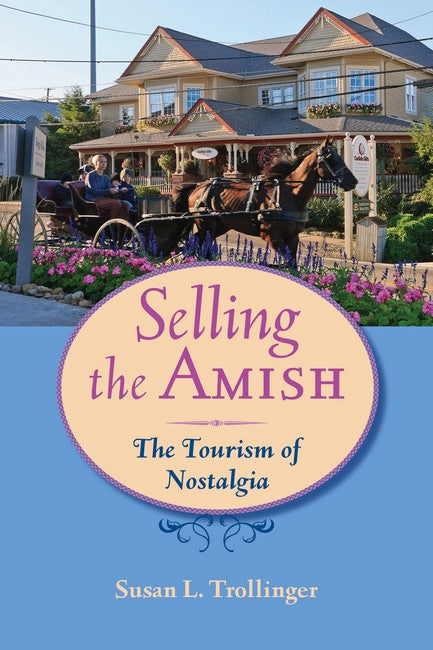More than 19 million tourists flock to Amish Country each year, drawn by the opportunity to glimpse 'a better time' and the quaint beauty of picturesque farmland and handcrafted quilts. What they may find, however, are elaborately themed town centers, outlet malls, or even a water park. Susan L. Trollinger explores this puzzling incongruity, showing that Amish tourism is anything but plain and simple. Selling the Amish takes readers on a virtual tour of three such tourist destinations in Ohio's Amish Country, the world's largest Amish settlement. Trollinger examines the visual rhetoric of these uniquely themed places and mdash;their architecture, interior decor, even their merchandise and souvenirs and mdash;and explains how these features create a setting and a story that brings tourists back year after year.This compelling story is, Trollinger argues, in part legitimized by the Amish themselves. To Americans faced with anxieties about modern life, being near the Amish way of life is comforting. The Amish seem to have escaped the rush of contemporary life, the confusion of gender relations, and the loss of ethnic heritage. While the Amish way supports the idealized experience of these tourist destinations, it also raises powerful questions. Tourists may want a life uncomplicated by technology, but would they be willing to drive around in horse-drawn buggies in order to achieve it?Trollinger's answers to important questions in her fascinating study of Amish Country tourism are sure to challenge readers' understanding of this surprising cultural phenomenon.

